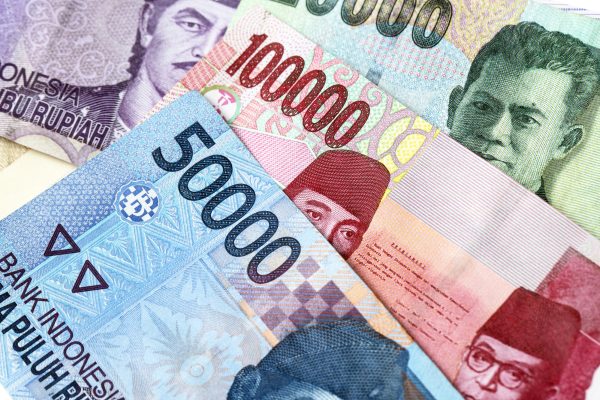As he prepares to take office later this year, Indonesian President-elect Prabowo Subianto has begun unveiling a bold vision for how the national economy will develop under his leadership. And a big part of this vision involves increased public spending which will be paid, in part, by more government borrowing. It was widely reported in recent weeks that the goal was to increase public debt to 50 percent of GDP over the next several years.
This was quickly walked back, with prominent figures including current ministers, former ministers, and members of Prabowo’s transition team stating that there are no concrete plans to increase the debt level to 50 percent of GDP, and that the incoming government will observe prudent spending policies. This was clearly done to allay doubts about Prabowo’s commitment to fiscal discipline, as the rupiah has been weakening recently and some people believe that is because investors are skittish about Indonesia going into budget-busting mode to meet big campaign spending promises in the years ahead.
There are several things to consider here. First of all, the primary cause of weakness in the rupiah is almost certainly high interest rates in the United States, which have stayed higher for longer than most people anticipated. This causes capital outflows from emerging markets like Indonesia and makes their currencies lose value against the dollar. I have written about this several times over the years, so it should not be a surprise. Prabowo’s comments about increased spending might impact capital markets at the margin, but it’s not the main story here.
Second, could Indonesia increase public spending if it wanted to? The answer to that question is more complicated, but in my opinion yes it could. Indonesia is legally required to keep annual fiscal deficits capped at 3 percent of GDP, and total public debt below 60 percent of GDP. In the current year budget, the deficit is expected to come in around 2.3 percent and total debt is currently below 40 percent. This means that what Prabowo is saying, which is that Indonesia has if it chooses to use it, the fiscal space for more public spending is actually true.
During Jokowi’s 10 years in office, he and his economic team have been very shrewd about running deficits and incurring debt in order to underwrite economic growth. He has been criticized for this, but in my view it has been a pretty effective development model. It is obvious that Prabowo is planning to do basically the same thing, although perhaps at a somewhat larger scale. People see higher debt levels and they often have a negative knee-jerk reaction, but the actually important question is not whether public debt is increasing. It is what the debt is being used for.
What sort of spending plans does Prabowo have in mind? A big concern is increased debt would not be spent wisely, but those fears may be overblown. Take Prabowo’s campaign promise to provide free lunches for 80 million children. During the campaign, the cost for this program was estimated at an unrealistically high figure of almost $30 billion a year. The government has now clarified that the program will be allocated 71 trillion Indonesian rupiah ($4.3 billion) in the 2025 budget which is much more reasonable. Broadly speaking, $4 billion a year to ensure a large number of children get better nutritional access is a good use of public spending, even if the government has to increase the deficit to pay for it.
Prabowo’s messaging perhaps lacks finesse, but the idea that the state should leverage its fiscal power, including by borrowing to underwrite industrial development and social welfare, has been embedded in the economic philosophy of Indonesia for decades. In fact, arguably the most influential proponent of this type of developmentalism was Prabowo’s father, Sumitro Djojohadikusumo. Sumitro was a key intellectual and government figure during the country’s formative years, and much of his thinking on economic development can still be detected in policymaking today.
Back in the 1950s in a newspaper called Nieuwsgier, Sumitro engaged in a debate with his contemporary, Sjafruddin, about the role of debt and foreign investment in economic development. Sjafruddin was arguing the more conventional position, which was that Indonesia needed to carefully manage its deficit and balance of payments so as not to upset and deter foreign companies and governments from investing in Indonesia. Sumitro disagreed, writing: “We cannot just conclude that a budget surplus or a foreign exchange surplus in the balance of payments is a favorable phenomenon. We have to ask the important question of what the function is of a budget deficit or surplus in connection with the level of production and economic activity, national income, employment, etc.”
In so many words, Prabowo’s recent statements on the willingness to run bigger deficits is simply echoing the words of his father. Indonesia has, if it chooses to use it, the fiscal space to increase public spending and run higher deficits (within reason) to pay for it. The main concern should not be whether debt levels are rising, but whether the debt incurred is being used productively. If that is the case, it is not something that capital markets or fiscal watchers should be afraid of. It also should come as no surprise that Prabowo would embrace such an economic philosophy, given that his father was one of the most articulate and influential proponents of it many decades ago.





















Discussion about this post